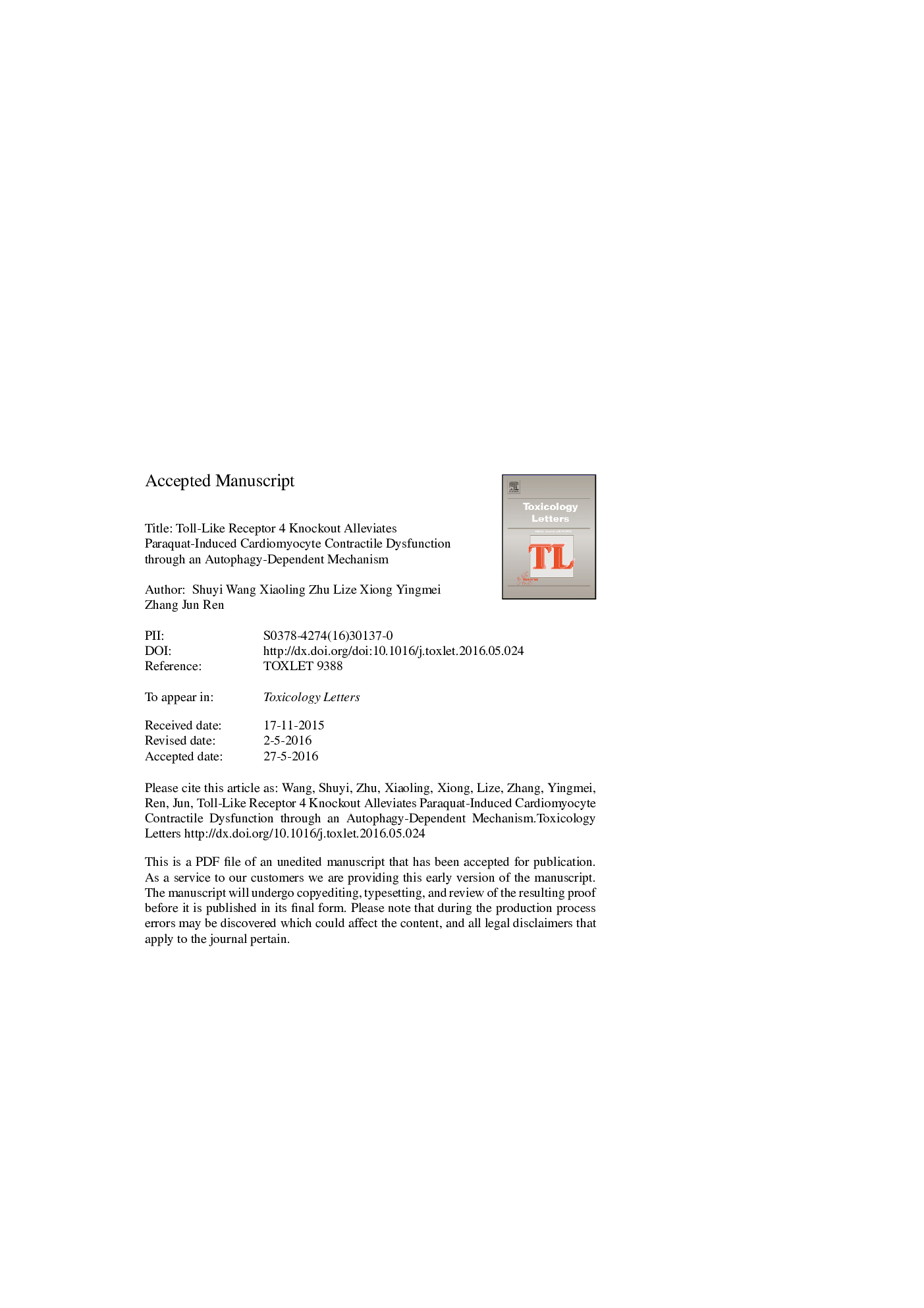| Article ID | Journal | Published Year | Pages | File Type |
|---|---|---|---|---|
| 5859795 | Toxicology Letters | 2016 | 29 Pages |
Abstract
Paraquat, a quarternary nitrogen herbicide, is a toxic prooxidant leading to multi-organ failure including the heart although the underlying mechanism remains poorly understood. This study was designed to examine the role of the innate proinflammatory mediator toll-like receptor 4 (TLR4) in paraquat-induced cardiac contractile anomalies and the underlying mechanisms involved with a focus on autophagy, a conservative machinery governing protein and organelle degradation and recycling for cardiac homeostasis. Wild-type (WT) and TLR4 knockout (TLR4â/â) mice were challenged with paraquat (45Â mg/kg, i.p.) for 48Â h. Paraquat challenge did not affect mRNA levels of TLR2, TLR4 and TLR9 in WT mice nor did paraquat treatment alter TREM-1 levels. Paraquat challenge elicited cardiac mechanical defects including compromised cardiomyocyte contractile function, intracellular Ca2+ handling, and overt autophagy as manifested by increased LC3BII-to-LC3BI ratio, Atg5, Atg7 and p62 levels. Interestingly, TLR4 knockout significantly attenuated paraquat-induced cardiac contractile and intracellular Ca2+ derangement as well as alterations of autophagy markers. Paraquat-elicited changes in cardiac autophagy markers (LC3BII, LC3BII-to-LC3BI ratio and p62) were augmented by lysosomal inhibition using bafilomycin A1 in WT mice. TLR4 knockout significantly attenuated or negated paraquat-elicited increase in LC3BII, LC3BII-to-LC3BI ratio and p62 levels in the presence of lysosomal inhibition. In addition, paraquat challenge promoted phosphorylation of AMPK while suppressing the phosphorylation of mTOR and ULK1 (the autophagy inhibitory Ser757), the effects of which were significantly attenuated by TLR4 ablation. In vitro study revealed that AMPK activation using AICAR or mTOR inhibition using rapamycin effectively negated the beneficial cardiomyocyte mechanical effects of TLR4 inhibition (CLI-095) against paraquat toxicity, supporting a permissive role for AMPK-mTOR in TLR4 inhibition-offered cardioprotection against paraquat. Our results suggested that TLR4 knockout alleviated paraquat-induced cardiac dysfunction possibly through regulation of AMPK-mediated cardiac autophagy.
Related Topics
Life Sciences
Environmental Science
Health, Toxicology and Mutagenesis
Authors
Shuyi Wang, Xiaoling Zhu, Lize Xiong, Yingmei Zhang, Jun Ren,
